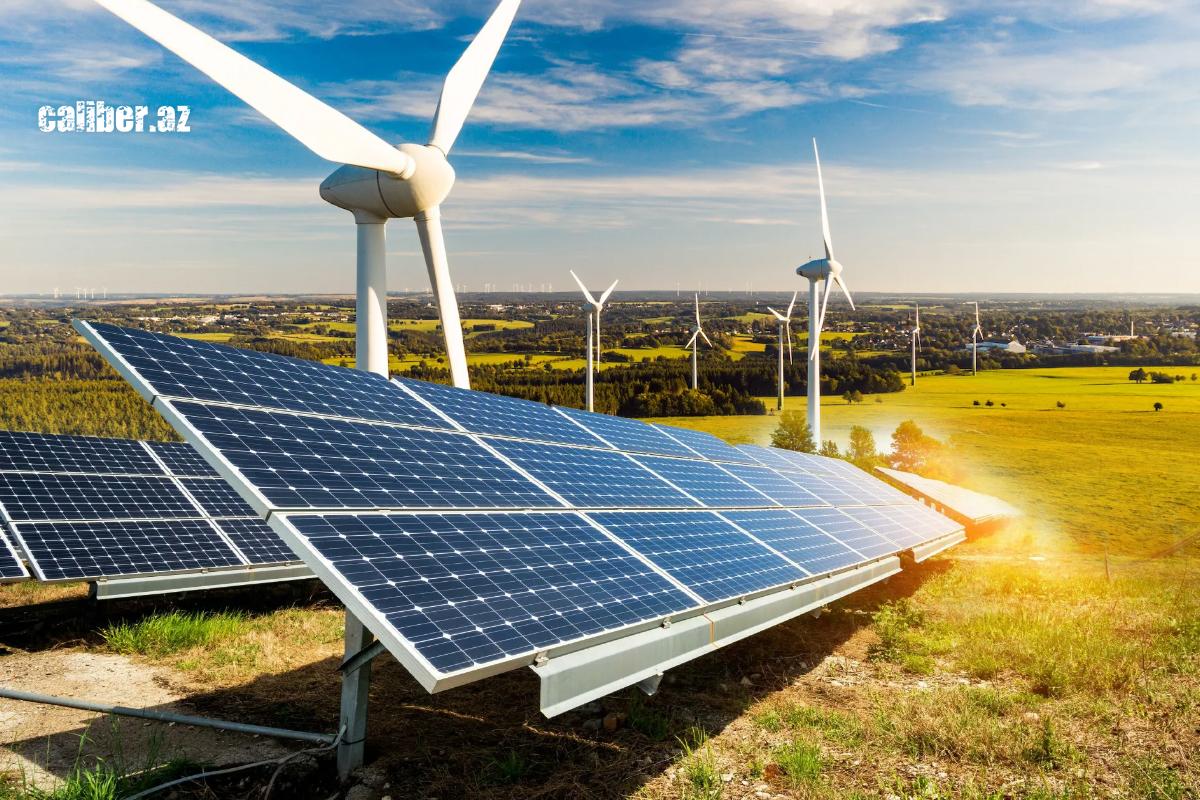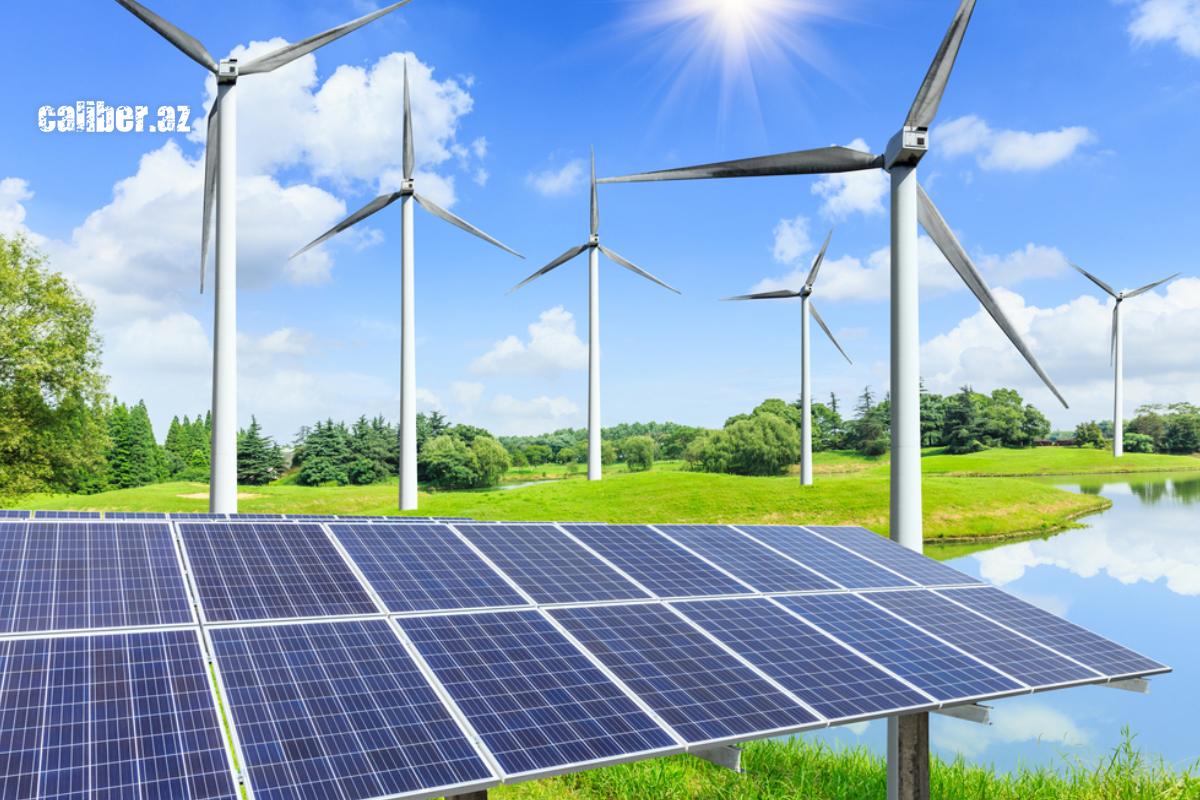COP29 and European Bank's "green" financing initiatives A step towards Azerbaijan’s sustainable future
On November 11, the Baku Olympic Stadium hosted the opening ceremony of the UN Climate Conference – COP29, bringing together state leaders and climate experts from around 100 countries.
Among the prominent participants, the European Bank for Reconstruction and Development (EBRD) marked the event with the signing of significant financing agreements supporting green initiatives within its Azerbaijan country strategy. Notably, the EBRD board has approved long-term loans for the development, construction, and operation of solar power plants in the Bilasuvar and Neftchala regions. Additionally, funding was allocated for advancing the next phase of the EU’s Green Cities initiative, promoting sustainable urban development across Azerbaijan.
One of the key challenges humanity must address in the 21st century is overcoming the adverse effects of global climate change. According to the UN Framework Convention on Climate Change (UNFCCC) and the Kyoto Protocol, the primary focus is on industrial decarbonization to reduce CO2 emissions, develop green energy, tackle water scarcity, ensure safe waste disposal, and implement energy efficiency mechanisms in urban areas. Equally important is providing financial support to developing countries for the global energy transition expected between 2030 and 2035.
To address these complex goals, the UNFCCC was signed at the Earth Summit in Rio de Janeiro in June 1992, aiming to prevent dangerous human interference with the climate system. Over the years, 198 countries have joined this agreement, including Azerbaijan, which is hosting COP29 today. In recent years, Azerbaijan has consistently implemented advanced international practices in renewable energy development and has been actively working towards establishing a green economy.

These key goals are reflected in the long-term program adopted about three years ago, titled National Priorities for Socio-Economic Development: Azerbaijan 2030. The Azerbaijani government’s efforts in these areas receive support from international financial institutions (IFIs), including the World Bank, the Asian Development Bank, the Islamic Development Bank, and the European Bank for Reconstruction and Development (EBRD), the EU’s primary financial instrument. COP29 will feature numerous events and meetings, where agreements will be signed with various international climate and economic organizations, foundations, and IFIs.
The EBRD delegation, led by President Odile Renaud-Basso, will also participate in COP29. On November 20, Urbanization, Transport, and Tourism Day, a roundtable will be held with the leaders of the EBRD’s "green cities" initiative from the Special Programme for the Economies of Central Asia (SPECA) region.
As one of the global leaders in climate financing, the EBRD aims to allocate at least 50% of its projects to climate initiatives, investing €6.5 billion in green projects last year alone. Notably, Azerbaijan participates in the EU’s Green Cities Action Plan (GCAP), a program covering 56 cities worldwide with a total budget of €5 billion for environmental reform.
Two years ago, Ganja, Azerbaijan’s second-largest city, joined the EU’s action plan. Through two EBRD loans, projects were implemented for solid waste management, street lighting automation, and the installation of energy-efficient lighting systems in Ganja. Recently, the EBRD board approved a €35 million sovereign loan to improve water supply, sewage, and stormwater management in Ganja, including the construction of wastewater treatment facilities as part of the next stage of GCAP. The total project cost is €410 million, to be financed through multiple tranches and co-financed by an international donor grant.
This project addresses critical environmental goals, including increasing water accessibility and quality, and modernizing sewage and stormwater systems as outlined in the Ganja Green City Action Plan. In the future, other Azerbaijani cities, potentially including those in the Karabakh region, may also implement GCAP components.
Since 1992, Azerbaijan has received around €3.7 billion from the EBRD to fund approximately 190 projects. In recent years, under its new country strategy, the EBRD has increasingly focused on financing green initiatives in Azerbaijan’s municipal sector and renewable energy sphere. Looking ahead, the EBRD is prepared to support offshore wind development in the Azerbaijani sector of the Caspian Sea, the Black Sea Energy submarine cable project, and the development of a hydrogen strategy for Azerbaijan.
In 2022, the EBRD invested €21.4 million in Azerbaijan’s first private solar power plant in the Garadagh district of Baku. A year ago, the EBRD also expressed its commitment to co-financing ACWA Power’s Absheron-Khizi wind power plant with an output capacity of 240 MW, contributing around $200 million to the project. In May of this year, a $30 million EBRD loan was provided for Azerbaijan’s purchase of autotransformers for four substations, aiming to integrate new renewable energy capacities into the unified power system of Azerenerji JSC.

These green trends are set to continue, and, as EBRD Managing Director for Climate Strategy Harry Boyd-Carpenter recently highlighted, the Bank aims to launch impactful climate-focused initiatives on both international and local scales and sign major financing agreements at the UN Climate Conference in Baku.
On the opening day of COP29, it was announced that the EBRD’s board had approved a long-term loan of $95 million to Azerbaijan for the development, construction, and operation of the Bilasuvar Solar SPV solar power plant, with a capacity of 445 MW, in the Bilasuvar region. The project is being implemented by the Abu Dhabi Future Energy Company (Masdar), with a total estimated cost of $383 million and additional support from other international financial organizations. This project will play a crucial role in Azerbaijan’s transition to a low-carbon economy, reducing reliance on thermal power and helping achieve an annual CO2 emissions reduction of up to 442,000 tons.
The EBRD board has also approved a long-term loan of $66 million for Azerbaijan to support the design, construction, and operation of the Banka Solar solar power plant, with a capacity of 315 MW, in the Neftchala region. The total project cost is $283 million, with co-financing from other international donors, and will be implemented by Masdar’s subsidiary, Abu Dhabi Future Energy Company. This project is expected to reduce CO2 emissions by 314,000 tons annually, helping Azerbaijan meet its renewable energy targets under the Paris Agreement.








